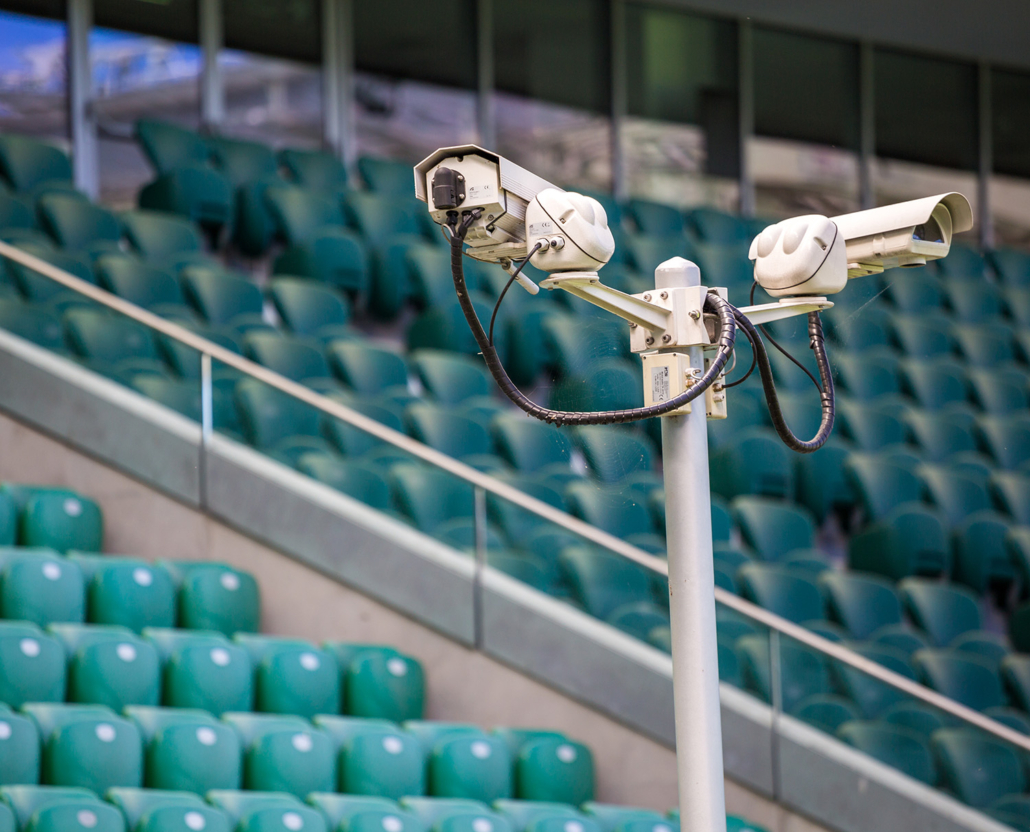The original text in French was originally published before the start of the Paris 2024 Olympic and Paralympic Games.
Following the adoption of the Olympic Law on 19 May 2023, algorithmic video surveillance (AVS), or intelligent video surveillance, has now been launched for the Paris 2024 Olympic and Paralympic Games. On March 3 and 5, 2024, the first AVS tests were carried out during a concert at the Accor Arena in Bercy. However, such trials cannot confirm whether video surveillance will be successful for the Paris 2024 Olympic Games.
The decree implementing Article 10 of the Olympic Law specifies that AVS will be used in 8 specific cases, but not to monitor absolutely everything. For example, it can be used to spot an abandoned object in a public place, a car driving the wrong way, or a weapon.
The use of video surveillance is due to expire at the end of 2024, but concerns remain, particularly from not-for-profits such as La Quadrature du Net, which is denouncing the risks of infringement upon civil liberties. Amnesty International also states that these technologies are ineffective in the fight against crime. The Commission Nationale de l’Informatique et des Libertés (CNIL – French Data Protection Authority) stresses the intrusive nature of algorithmic video surveillance.
In principle, AVS must facilitate respect for privacy while protecting public order, according to Claudine Guerrier, a researcher in law, economics and finance at Institut Mines-Télécom Business School: “Images from augmented cameras are personal data. Consequently, this data processing may run the risk of violating privacy and personal data protection under the GDPR, which was adopted in 2016 and came into force at the European Union level in 2018.”
“Vidéoprotection” or “vidéeosurveillance”: the impact of artificial intelligence
In reality, there is a slight distinction between the French terms ‘vidéosurveillance’ and ‘vidéoprotection’. The first texts published in France in 1995 mention the term ‘vidéosurveillance’. But at a certain point, there was a switch to ‘vidéoprotection’, as the term “protection” was considered broader in terms of both technology and meaning. “These days, the term ‘vidéoprotection’ is legally valid, and can even be seen in some places. But the reality is that it’s video surveillance,” says the researcher. When it came to using artificial intelligence with augmented cameras, the more neutral term ‘vidéosurveillance’ was adopted once again.
But what makes AVS so special is that it combines video surveillance or video protection with artificial intelligence. According to Claudine Guerrier, “they did not want to use the term ‘artificial intelligence’ in the initial bill, because at the time, artificial intelligence did not exist in European law.” At that point, the European Parliament called for the avoidance of anything resembling automated analysis. This may create a certain amount of confusion, especially as the European Parliament is hostile to anything involving biometrics in the field of artificial intelligence.
INITIAL video surveillance tests in the Paris region: what are the results?
Claudine Guerrier remains dubious about the initial video surveillance tests carried out at a concert at Bercy: “initial tests are rarely conclusive, and there just haven’t been enough of them.” During these tests, software known as City Vision was used for video surveillance. This is the software that will be used in the Île-de-France region, notably in stations and also on drones.
It is important to note that this type of video surveillance technology has long been in use in the region – such as by public transport operator RATP – as well as in other French cities. However, the new factor is the inclusion of artificial intelligence, which was not used before. “There will also be checks by the CNIL, which is generally quite reactive in this area. But that’s not enough to avoid the risk that it will get out of hand. For the moment, no one knows what could happen with algorithmic video surveillance, because it’s not really established,” says the legal researcher. At a national level, the French Cybersecurity Agency (ANSSI) also plays a regulatory role for algorithmic video surveillance.
The 2023 Bletchley Declaration aims to support a certain form of regulation in the field of artificial intelligence. “It’s a very important text because it has scientific, legal and geopolitical scope,” says the researcher. The declaration has been signed by 29 countries, including the European Union, the United States and China, the leading countries in artificial intelligence.
Video surveillance at the Olympic Games: what about personal data protection?
For the Olympic Games, the national police, municipal police, security guards and private companies acting as subcontractors will all be involved in the algorithmic video surveillance systems. The risk of overstepping the bounds of privacy is greatest around the role of subcontractors and their control over data use and management. Added to this is the question of the relationship between security and freedom. According to the legal researcher, “before, in the 20th century, the aim was to strike a balance, a certain proportionality, between the need for security and the need for freedom. Throughout the 21st century, in the geopolitical context and with new technologies, the emphasis has shifted more towards security than freedoms.”
One of the most important aspects of video surveillance risk management is data storage. “Apparently, in the case of AVS for the Olympic and Paralympic Games, there will be no general storage of data. For example, if a bag is abandoned in a stadium, the algorithm can interpret this as a dangerous situation, but without recording information about the people present,” says Claudine Guerrier.
For the organization of the Paris 2024 Olympic and Paralympic Games, algorithmic video surveillance will be at the heart of debates. Between the concerns of not-for-profits about personal data protection and the aims of law enforcement, video surveillance will certainly be in the spotlight.





